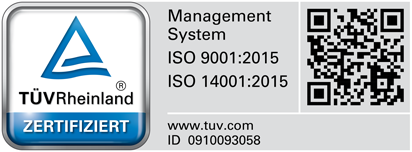sales@lufapak.de +49 2631/384-0 Contactform
Yield Management
23. March 2024
RMA number
23. March 2024The reorder point is a term used in inventory management and materials management. It denotes the quantity of a particular item below which a reorder or production is triggered to ensure smooth operation and avoid supply bottlenecks.
The calculation of the reorder point usually takes into account the average consumption as well as the average procurement or production time. If the stock level of an item falls to the reorder level, a purchase order is triggered to replenish the stock.
Why is the reorder point so important?
Essentially, reorder point allows a company to effectively manage its inventory to ensure smooth operations while minimizing costs and improving customer service.
- Avoiding supply shortages: When inventory levels drop to the reorder level, it is used as a signal to reorder. This ensures that there is always enough stock to meet ongoing demand and avoid supply bottlenecks.
- Supply chain optimization: by defining a reorder point, a company can optimize its supply chain by planning ordering cycles while minimizing inventory costs.
- Reducing shortage costs: reorder point helps avoid shortage costs that can occur when demand exceeds supply and customers cannot be served.
- Improving customer service: By ensuring that there is always enough inventory to meet demand, a company can provide consistent and reliable service to its customers.
Reorder level formula – Calculate & determine the reorder level
The reorder level is usually calculated by multiplying the average daily consumption by the average delivery time (in days) and adding the safety stock.
Calculate reorder point formula at a glance:

Reorder level = (Average daily consumption x Average delivery time in days) + Safety stock level
Example: If a company sells an average of 10 units of a product per day, the average lead time is 5 days, and the safety stock is 20 units, then the reorder point would be:
Reorder point = (10 units/day x 5 days) + 20 units = 70 units.
This means that a reorder will be triggered when the stock level drops to 70 units. This ensures that there is enough inventory to cover ongoing operations during the delivery period and absorb any fluctuations in demand or delivery delays.
Reorder point in the context of supply chain management
Reorder point plays a crucial role in supply chain management (SCM). SCM refers to the coordination and control of all supply chain activities of a company with the aim of maximizing efficiency and productivity. In this context, reorder point is an important tool for controlling inventories and avoiding supply bottlenecks.
In practice, reorder point is used to determine when it is necessary to reorder goods or raw materials. When the stock level of a particular item drops to the reorder level, a purchase order is triggered. This ensures that there is always enough stock to meet ongoing demand while minimizing inventory costs.
In addition, reorder point can also help improve collaboration between suppliers and customers in the supply chain. By accurately planning and forecasting demand, companies can give their suppliers early notice of when they are likely to place a new order. This enables suppliers to plan their production accordingly and avoid delivery delays.
Contact us now and get advice


